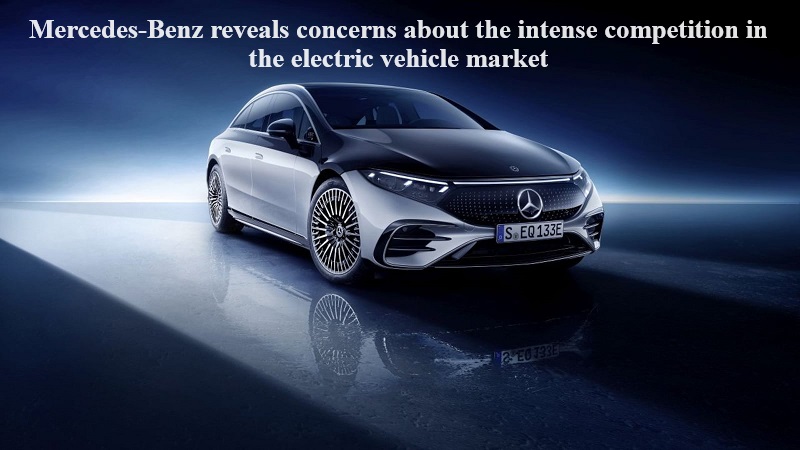
Luxury automaker Mercedes-Benz has expressed concerns about the intense competition in the electric vehicle (EV) market, marked by aggressive price reductions and supply chain disruptions.
As a consequence, the company is anticipating that its adjusted return on sales for the cars division may fall within the lower range of the 12-14 percent forecast. This announcement coincided with a decline in third-quarter earnings, putting pressure on the company’s financial outlook.
Mercedes-Benz’s Chief Financial Officer, Harald Wilhelm, mentioned on an analyst call that if margins on EVs continue to underperform compared to earlier projections, they could seek to bolster earnings through their combustion engine portfolio. He described the current EV market landscape as “brutal,” especially due to established players selling battery electric vehicles at prices equivalent to or even below internal combustion engine cars, despite the higher production costs. Wilhelm expressed doubts about the sustainability of the current status quo.
The luxury automaker emphasized its commitment to its EV targets while acknowledging the necessity of exploring alternative revenue streams. It clarified that recent discounts on some models in Germany do not represent a fundamental shift in its pricing strategy, and its commitment to maintaining premium prices to prioritize margin growth remains intact.
In response to these developments, Mercedes-Benz shares declined by over 6 percent, reaching their lowest point in nearly a year. They became the biggest losers on the Eurozone blue-chip index, with BMW down 4 percent and Volkswagen down more than 2 percent.
The broader sentiment reflects the challenges that the luxury carmaker faces in the EV market. This struggle is not unique to Mercedes-Benz, as other automakers, including Ford and Tesla, have been implementing significant price reductions throughout the year in various global markets to boost demand. However, Mercedes-Benz has largely refrained from following this trend, maintaining its commitment to premium pricing.
In the third quarter, the company reported a 12.4 percent adjusted return on sales in its cars division. The group’s earnings before interest and taxes (EBIT) fell by 6.8 percent to 4.8 billion euros ($5.1 billion), and group revenue decreased by 1.4 percent to 37.2 billion euros.
Mercedes-Benz reported a 4 percent drop in third-quarter sales, with top-end sales down by 11 percent, partially attributed to model changeovers and a shortage in 48-volt systems supplied by Bosch.
The automaker acknowledged that the market environment is currently “subdued.” However, Harald Wilhelm expressed optimism, suggesting potential stabilization in the broader economic landscape, stating that they believe “we are beyond the worst” when it comes to inflation and energy pricing.

Post Your Comments